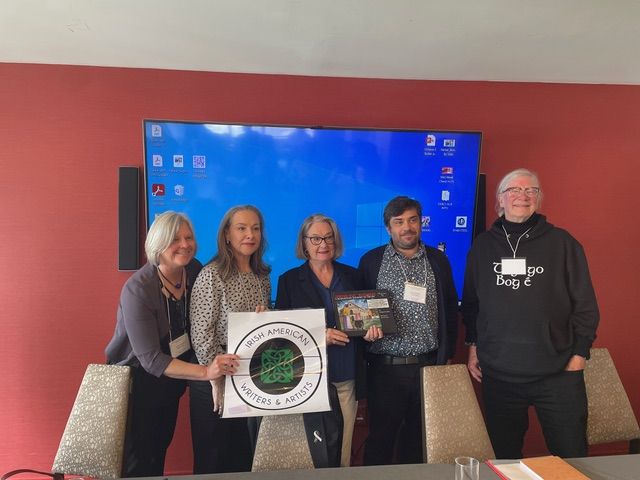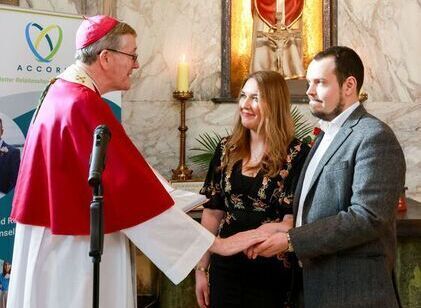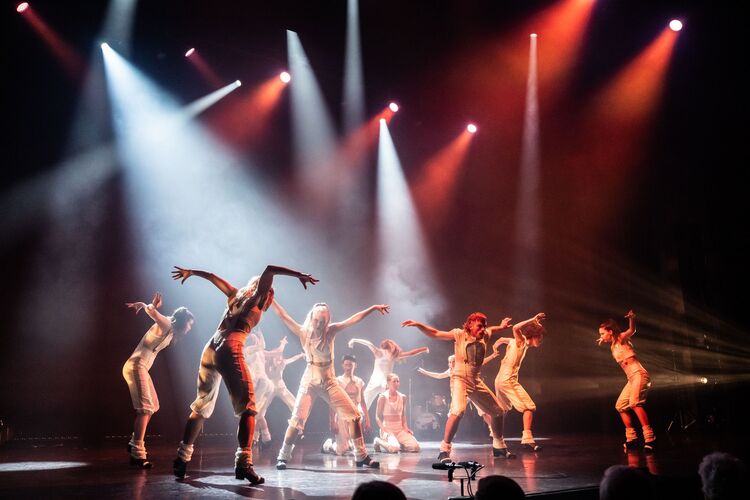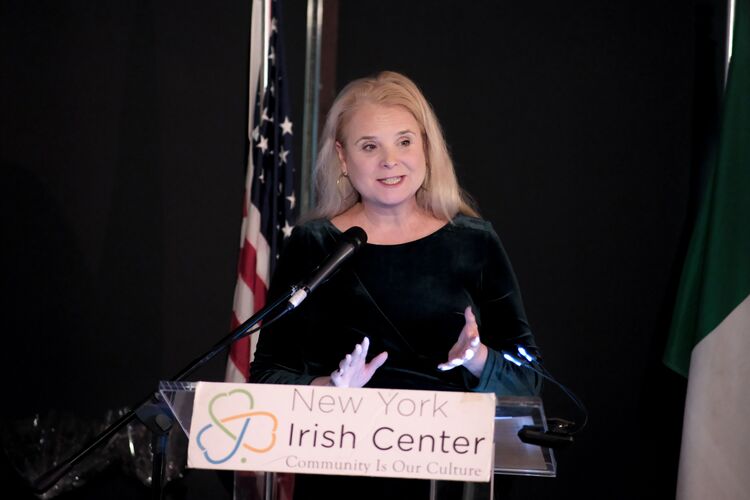It was a first for Irish American Writers and Artists, it participated in the American Literature Association’s 36th annual conference, held at the Copley Boston Hotel on May 23. The panel entitled, “From 18th Century Slave-traders to 21st Century Tony nominated musical writer, New York’s Irish immigrant impact -- stories of heroes, villains and rockers”, was chaired by your diarist, a IAW&A board member
This endeavor was championed by Brendan Costello, the late president of IAW&A, and after introducing the IAW&A organization’s mission, I asked the panelists to “Do Brendan proud.”
Can you imagine for a moment that all your life you believed you were of German heritage only, and then discovering that Proud Charlestonian, Margaret Seidler; after a DNA test, has discovered she is of Irish descent, and moreover, that she is descended from 18th century slave-traders.
Margaret shared that, after a primal scream, she got to work on a journey of reckoning and redemption. Her book “Payne-ful Business: Charleston’s Journey to Truth”. Her paper described her awakening and outreach to family she never knew, and the awful burden of the knowledge that her Irish-American forebears made a fortune selling hundreds of slaves in a secondary storefront market and via classified advertisements.
While on this journey she was approached by the artist John W. Jones who took many of the descriptions from the ads and painted a rendering or a dignified portrait that gives this work stark but beautiful tribute. Margaret spoke eloquently of their personal journey and the mission she is now on to bridge today’s racial divide. On June 6, she received the 2025 Phillis Wheatley Book Award.
Loretto Leary, the County Galway-born secretary of Ireland’s Great Hunger Museum of Fairfield, presented her research and writing that she plans to make a theater piece or illustrated book. Irish immigrants, she said, perished at the Staten Island Marine Hospital and Quarantine Station, a site where thousands of famine survivors were quarantined upon arrival in the United States. Loretto told their plight through first-person accounts that made the ALA audience viscerally feel the suffering and their struggle to survive.
Moving onto the 20th century, Widener University’s Ben Nadler read his research for a forthcoming book on Jim Carroll, who was famous for the memoir “The Basketball Diaries.” The full breadth of Carroll’s work as rock musician, poet and author was discussed in the context of his neighborhood of Inwood, in upper Manhattan. Nadler's presentation skillfully and vividly illustrated the impact of the neighborhood's Irish heritage and Catholic sensibility. As Tom Deignan wrote in Irish Central after his death, “Carroll, like it or not, forces you to realize that we cannot put narrow definitions on who is and is not Irish American.” Ben Nadler, incidently, is the author of “The Sea Beach Line: A novel of Punk, in NYC’s LES, 1981-1991.His next novel, “Prairie Ashes,” is forthcoming from Buffalo Books, Kansas State University.
The final panelist, Bill Nevins, poet, author, musician and long-time member of Irish American Writers & Artists and retired professor, spoke about the work Larry Kirwan, who is a musician, poet, songwriter, playwright (including Tony nominated musical “Paradise Square”) and novelist. Bill presented Larry’s long career and read from his memoirs and novels. He also spoke of their long association and their joint projects together. Overall, it might be said Nevins astounded the audience with his account of the life of this modern-day renaissance man.
Your diarist concluded the panel with a quote from Larry memoir “The History of Irish Music” – “There’s forever something new to learn, some new challenge, a different drummer to march to. As an old man with fiery eyes once said to me in a decrepit Bowery saloon, ‘You might think I’m a bum, but you’d be missin' the point, Mack, I was in the arena- and that’s all that counts.’ That’s all indeed.”
I thanked Margaret Seidler, Loretto Leary, Ben Nadler and Bill Nevins for “being in the arena” as IAW&A’s inaugural panel at the American Literature Association conference.









